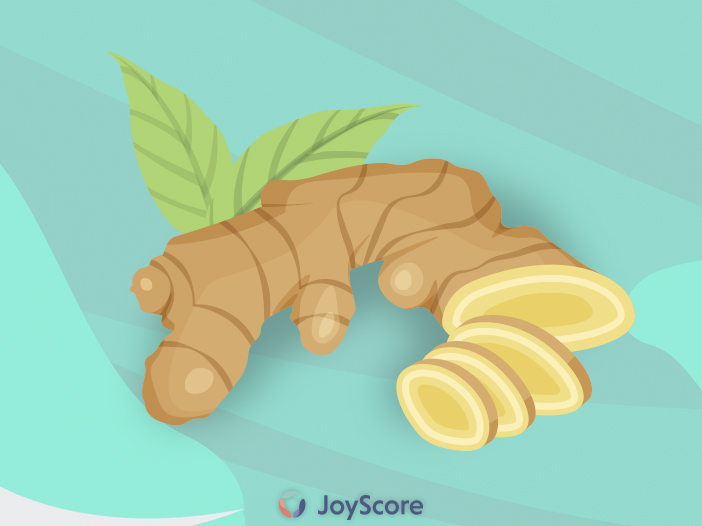Nature has bestowed us with an abundant and massive variety of herbs and spices. Spices and herbs, prevalent since ancient times, are now playing a new and essential role in modern food preparation. They not only impart unique flavors to our food but contribute color and variety as well. Certain spices and herbs used alone, or in blends, can replace or reduce salt and sugar in foods.
Ginger, the most commonly used spice worldwide, is the underground rhizome of the ginger plant, known botanically as Zingiber officinale. The plant’s botanical name, derived from its Sanskrit name Singabera, means “horn-shaped.” Its properties are well-known of traditional Chinese medicine and Indian one (Ayurveda). More recently, ginger is making its way in Western Europe and North America in aromatherapy. In Asia, ginger is more of a savory ingredient. That’s because ginger contains tons of warm, pungent, peppery flavors that work well with meats and vegetables.
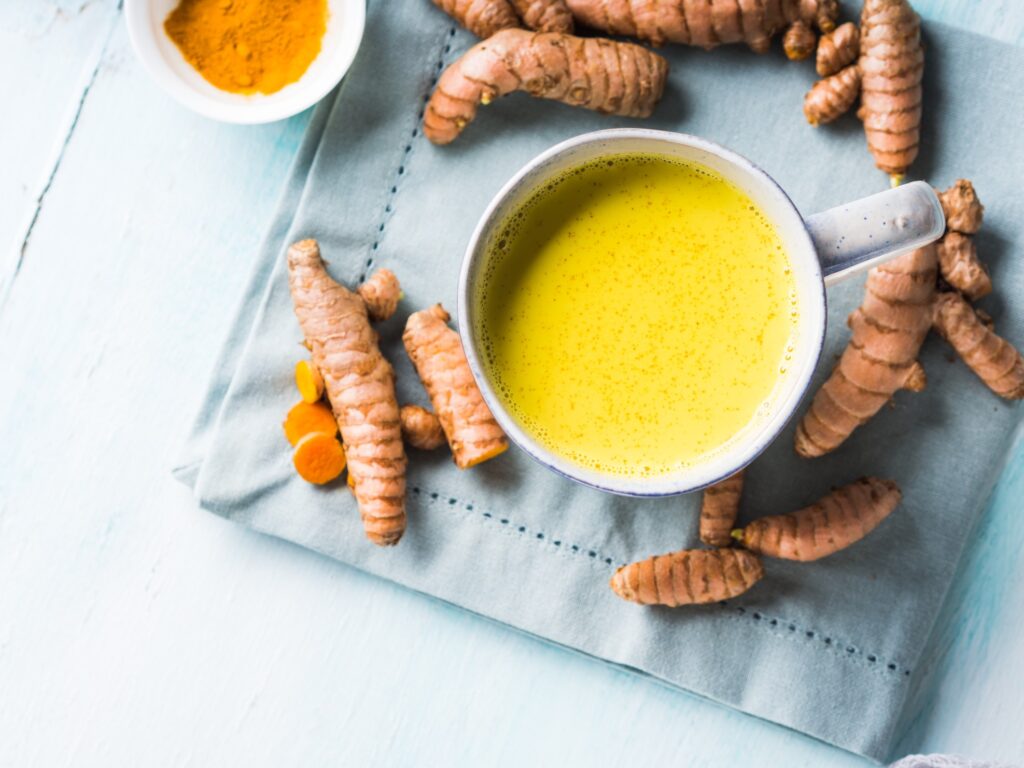
Ginger, a flowering plant, has a very long history of use in various forms for traditional/alternative medicine as it has many healing properties to it. It originated in southern Asia and is grown in tropical areas all over the world. Ginger has been used for ages to add spice and flavor to food and treat ailments. Its aromatic, pungent rhizome (underground stem) acts as a spice for flavoring food. It helps in digestion, reduces nausea, and helps fight the flu and common cold. Ginger is available in various forms as fresh, dried, powdered, juice, or as an oil. It’s nutrients abundance and bioactive compounds have potent benefits for your body and brain. It is heating food. When your body feels cold in cold winter months, this is good for your overall heating body temperature. Ginger tops the most readily available ingredients for home remedies against cough and cold and building immunity.
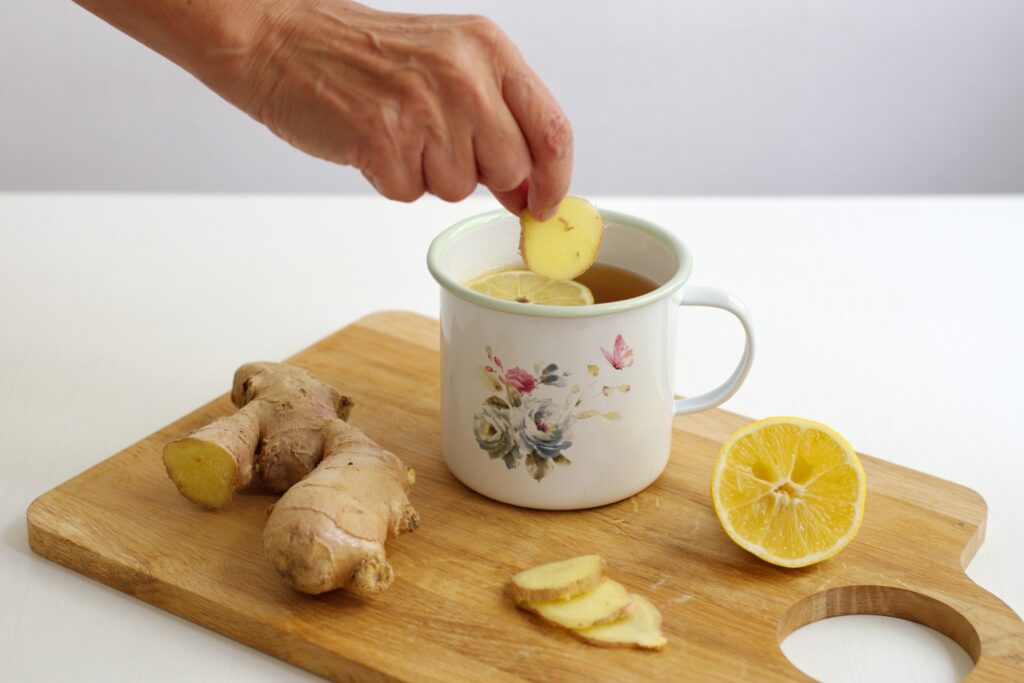
With an abundance of healing properties, here are the health benefits of ginger –
- Ginger can cure nausea to a great extent, especially morning sickness in pregnancy. It aids in reducing seasickness. Ginger is also a great reliever in reducing nausea and vomiting after surgery, and in cancer patients undergoing chemotherapy.
- Ginger may reduce muscle pain and soreness. Ginger may not immediately impact but can be effective at reducing muscle pain. These effects are a result of anti-inflammatory properties.
- The anti-inflammatory properties can help with osteoarthritis, which is a global health issue. It is a form of arthritis where there is degeneration of the joints in the body, leading to joint pain and stiffness. People suffering from osteoarthritis of the knee had less pain and stiffness and required less pain medication on taking the ginger extract daily.
- Ginger may have powerful anti-diabetic properties, though the research is still going on for the same. Ginger has helped reduce blood sugar levels and improve various heart disease risk factors in patients with type 2 diabetes.
- Ginger plays in reducing pain relief, including menstrual pain. The ginger powder, when taken with lukewarm water, reduces menstrual pain. Ginger manages to subside pain as effectively as any painkiller drug. If taken at the start of the period, ginger appears to be very effective against menstrual pain.
- Ginger may lower cholesterol levels. The food you eat can have a strong influence on LDL levels (the bad cholesterol), and high LDL directly affects the risk of heart disease. There is evidence that ginger can lead to significant reductions in LDL cholesterol and blood triglyceride levels in both animals and humans.
- Cancer is a severe disease that is characterized by the uncontrolled growth of abnormal cells. Ginger contains a substance called 6-gingerol, a substance found in large amounts in raw ginger, which may have protective effects against cancer( pancreatic cancer, breast cancer, and ovarian cancer).
- Ginger protects against Alzheimer’s disease and can help improve brain function. Oxidative stress and chronic inflammation are among the key drivers of Alzheimer’s and age-related cognitive decline. They can accelerate the aging process. Some studies suggest that ginger can guard against age-related damage to the brain. It can also enhance brain function in older women.
- Gingerol, the bioactive substance in ginger, aids in lowering the risk of infections. Ginger extract can repress the growth of many different types of bacteria and fungi. It is beneficial fighting the oral bacteria linked to inflammatory diseases in the gums, such as gingivitis. Ginger may fight harmful bacteria and the RSV virus (a common cause of respiratory infections).
- Ginger gives a warming and soothing effect that increases blood circulation in the head and encourages healthy hair growth. Cut ginger into pieces and rub on the scalp to prevent baldness and hair growth.
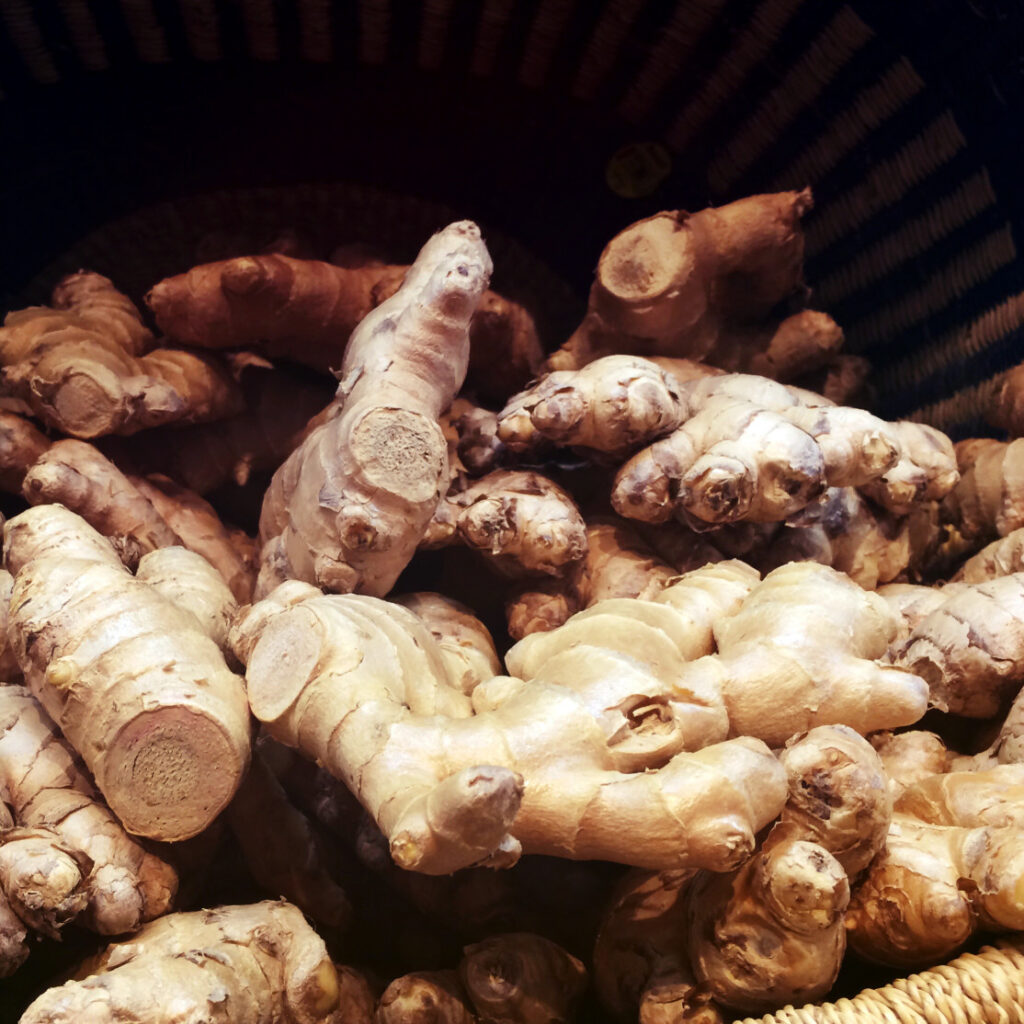
Ginger as a Home Remedy
Ginger, with multiple medicinal properties and benefits, is used not only in cooking but also in non-cooking. It’s usage for medicinal purposes, skin care, and even for hair care is in abundance. Because of its ready availability and significant properties, it can be mixed with other spices to make home remedies.
Mix 4 tsp fresh ginger juice with 4 tsp honey and a dash of powdered pepper. Take this mixture with lukewarm water for cold and cough. It`s a natural way to cure a cold, especially for children who can not consume the syrups available for the same.
- Cut and peel some ginger pieces. Sundry them and keep them in a covered bottle for 12 days. Consuming 2-4 parts every day, solves digestive issues.
- Also dried ginger mixed with little jaggery and one glass of milk. Absorbed every morning, cures stomach ache, and increases digestion.
- Mix 1 tablespoon of ginger paste with one tablespoon of jojoba or coconut oil. Apply the mixture on your hair and massage gently using your fingertips. Leave for 25-30 minutes and then rinse off with shampoo.
- Cut ginger and mix it with honey and leave for half an hour. Consuming this prevents skin aging.
- Consume fresh ginger juice daily to clean your body from toxic materials and relieve yourself from the inflammation due to piles.
- Ginger tea, every household favorite, especially in chilly winters, is a herbal beverage made from ginger root. It has a long history as traditional herbal medicine. It helps reduce bloating after meals. It also relieves nasal congestion and sore throat.
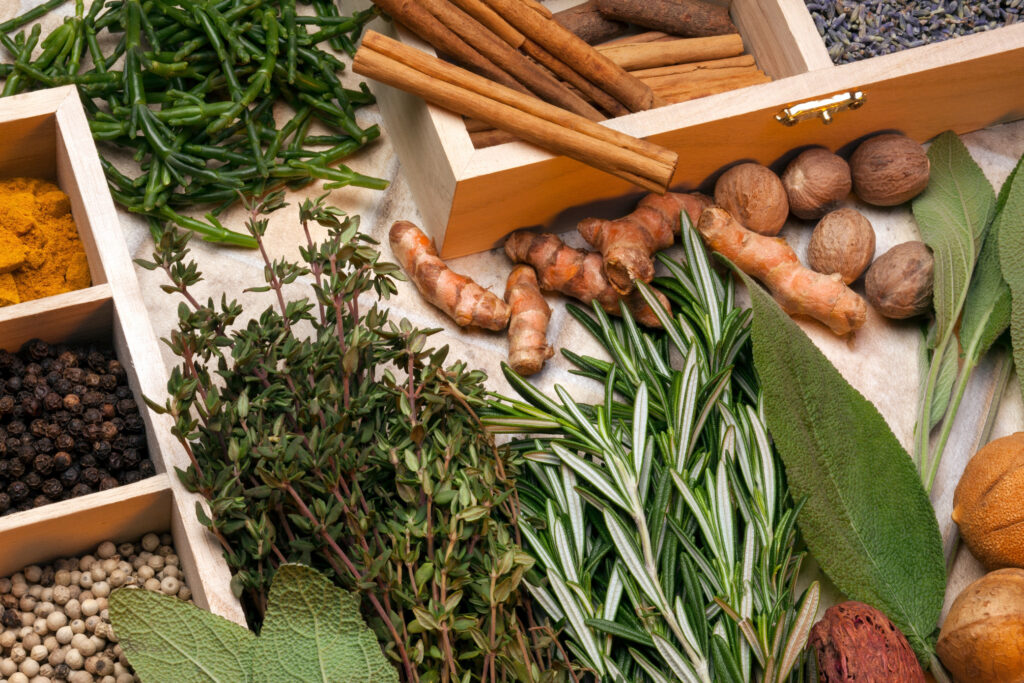
Ginger is a Miracle Spice.
There are numerous ways to enjoy ginger — starting from sipping tea to incorporating it into your cooking. Moreover, you can use it to flavor both sweet and savory foods. When buying ginger for a recipe, it’s healthier to opt for the fresh root than the dried, powdered form. You’ll get more of the gingerol that way.
